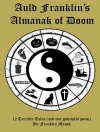In ‘The Phantom ‘Rickshaw, ‘ Rudyard Kipling presents a masterful exploration of colonial India through a series of interconnected tales steeped in supernatural elements and poignant social commentary. The collection’s literary style is characterized by Kipling’s hallmark blend of vivid imagery, local dialects, and an incisive understanding of the complexities of British colonialism, encapsulating the haunting intersection of reality and the spectral. This narrative tapestry reflects his fascination with the culture and the psychological nuances that permeate the lives of both colonizers and the native populace, providing a nuanced and sometimes unsettling portrayal of imperial life. Rudyard Kipling, an emblematic figure of British literature, was born in colonial India, where his early experiences profoundly shaped his worldview and literary voice. Educated in England, he returned to India as a young man, drawing upon his firsthand experiences to create works that frequently grapple with themes of identity, dislocation, and the supernatural. Kipling’s exposure to diverse cultures enabled him to craft complex characters and narratives, allowing him to become both an observer and critic of colonial dynamics. Readers seeking a rich, atmospheric tale that interweaves the supernatural with a deep understanding of the human condition will find ‘The Phantom ‘Rickshaw’ a rewarding experience. Kipling’s blend of humor, horror, and critical insight invites us to reflect on the lingering effects of colonialism, making this collection a compelling addition to any literary canon.
Over de auteur
Rudyard Kipling, born on December 30, 1865, in Bombay, British India, was an English journalist, short-story writer, poet, and novelist. He is renowned for his innovative narrative style and depiction of the British Empire’s experiences. Educated in England, Kipling returned to India in 1882, where he worked for Anglo-Indian newspapers. His formative years in India influenced much of his work, which is often interwoven with themes of the British colonial experience and elements of Indian culture. One significant example is ‘The Phantom ‘Rickshaw, ‘ a novella that explores the haunting of a British man by the spirit of a deceased lover, reflecting Kipling’s fascination with the supernatural. This story is included in his collection ‘Wee Willie Winkie and Other Child Stories’ (1888), showcasing Kipling’s early storytelling prowess.
Kipling’s literary style combines a vivid imagination with a mastery of language and power of description, often using vernacular speech and dipping into various narrative formats. His significant contributions to literature were recognized with the Nobel Prize in Literature in 1907, making him the first English-language writer to receive the award, as well as its youngest recipient to date. Kipling’s best-known works include ‘The Jungle Book’ (1894), ‘Kim’ (1901), and the poem ‘If—’ (1910). Despite controversies surrounding his imperialist views, Kipling remains an influential figure in the canon of English literature. He passed away on January 18, 1936, in London but left behind a vast and complex literary legacy that continues to be studied and appreciated.












